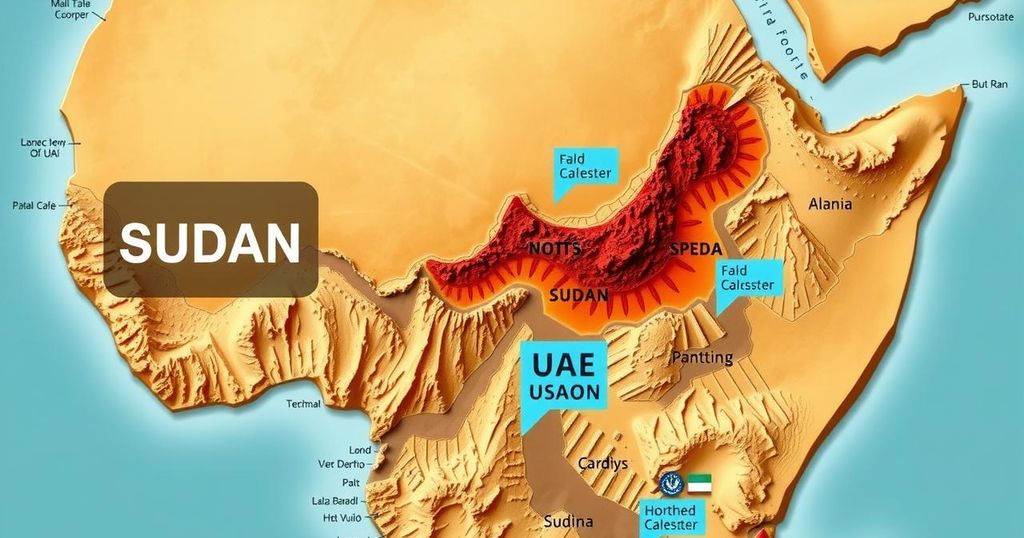Sudan has filed a case against the UAE at the International Court of Justice, accusing it of complicity in genocide through its alleged support for the Rapid Support Forces during the civil war. The UAE’s interests in Sudan include political influence and access to natural resources. While the UAE denies allegations of military support, experts caution against growing perceptions of its role as destabilizing.
The United Arab Emirates (UAE) faces accusations from Sudan regarding its alleged role in the genocide during the ongoing civil war. Sudan has filed a case at the International Court of Justice (ICJ), claiming the UAE’s involvement amounts to complicity in war crimes through its support for the Rapid Support Forces (RSF), allegations that the UAE has steadfastly denied.
Sudan, rich in resources, including gold, gas, and fertile land, has been embroiled in conflict since the military coup in 2021. The coup saw Army Chief Abdel Fattah al-Burhan and RSF commander Mohamed Hamdan Daglo—known as Hemeti—taking power. Subsequently, a violent power struggle ensued, with various nations, including the UAE, allegedly backing different factions.
Analysts assert that the UAE’s main objective in Sudan is to establish political influence in this strategically vital region. As the UAE seeks access to the abundant natural resources and trade opportunities in Sudan, researchers note its systematic collaboration with paramilitary groups to exploit these assets across Africa.
The UAE dominates the global gold trade, being the largest importer of Sudanese gold, a sector largely controlled by Daglo. While this trade significantly contributes to the UAE’s interests, some experts argue that its motivations extend beyond resource acquisition and include geopolitical aims, particularly regarding limiting Saudi influence in the region.
Former partnerships between the UAE and Sudan’s military date back to their cooperation in the Yemen conflict. However, recent tensions have arisen between Saudi Arabia and the UAE, with the latter’s support for Daglo posing a challenge to Saudi goals. Ideologically, the RSF aligns more closely with the UAE’s agenda against the Muslim Brotherhood political movement, further complicating the conflict.
Recent allegations from Washington assert that the RSF has committed genocide, particularly targeting ethnic groups via mass violence. Furthermore, US lawmakers have accused the UAE of failing to uphold its commitment to cease military support to the RSF. Analysts note that Daglo has become financially reliant on the UAE, which has purportedly provided critical support, including arms deliveries.
As Sudan presented its case at the ICJ, the UAE dismissed the proceedings as a mere publicity stunt, seeking to have the case dismissed. While ICJ rulings are binding, enforcement capabilities are limited, with analysts forecasting potential reputational damage to the UAE from its ongoing involvement in Sudan’s conflicts, despite its influential position in global affairs.
The United Arab Emirates’ involvement in the Sudanese civil war has drawn considerable scrutiny following accusations of complicity in genocide, highlighted by Sudan’s case at the International Court of Justice. The UAE’s strategic interests in Sudan, centered on resource acquisition and political influence, showcase its broader geopolitical aspirations in the region. Despite ongoing allegations, the UAE continues to deny its support for groups like the RSF, maintaining a significant role in the region amid rising international criticism.
Original Source: www.hindustantimes.com




